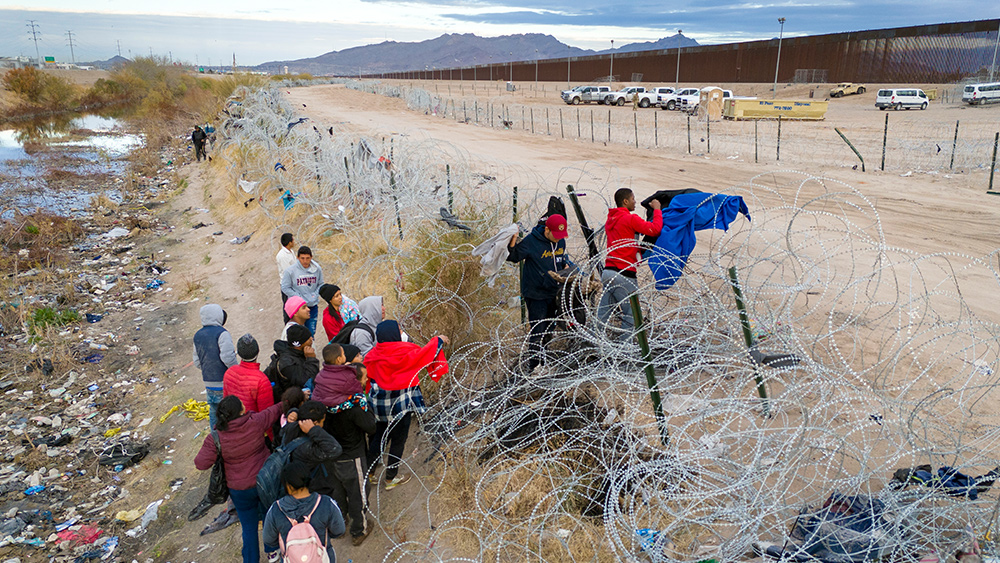 Parler
Parler Gab
Gab
WEF discussed expansion to social media censorship to curb so-called antisemitism
At the WEF 2025, Greenblatt, Weingarten, and Schenker emphasized the need for increased social media censorship. Their arguments are rooted in the belief that the current climate of online speech is fostering an environment conducive to antisemitic rhetoric. Greenblatt, CEO of the American Jewish Committee, argued that social media companies must take more proactive steps to prevent the dissemination of hate speech. Weingarten, president of the American Jewish Congress, echoed these concerns, stating that social media platforms have a moral obligation to ensure that their spaces do not become breeding grounds for antisemitism. She called for stricter enforcement of existing laws and the development of new legislation aimed at holding social media accountable for the content they host. Schenker, president of the International Holocaust Remembrance Alliance, highlighted the importance of education in combating antisemitism. She argued that universities and educational institutions must play a critical role in teaching students about the dangers of hate speech and the importance of respectful discourse. Their advocacy has sparked a debate over the balance between protecting individuals from hate speech and preserving free expression. These calls for increased censorship risk stifling legitimate political discourse and equating criticism of Israel with antisemitism.A threat to Free Speech worldwide
Constitutional scholars argue that the broad application of the IHRA definition of antisemitism and related legislation threatens First Amendment rights. The definition includes examples such as "claiming that the existence of a State of Israel is a racist endeavor" and "applying double standards by requiring of [Israel] a behavior not expected or demanded of any other democratic nation." These provisions, critics say, risk stifling legitimate political discourse and equating anti-Zionism—opposition to Israel’s existence as a Jewish state—with antisemitism. The move by Harvard University to adopt the IHRA definition and provide training on combating antisemitism has further fueled concerns about the suppression of dissent. Students and activists argue that this decision chills their ability to protest against Israel’s policies, particularly its ongoing war on Gaza, which has resulted in the deaths of more than 46,000 Palestinians. Furthermore, the Antisemitism Awareness Act, passed by the U.S. House of Representatives in May 2024, represents the latest effort to codify the IHRA definition into federal law. The bill, co-sponsored by a bipartisan group of lawmakers, passed the House with a vote of 320-91 and is now moving to the Senate. Critics argue that this bill, if enacted into law, will further criminalize anti-Israel sentiments and shield Israel from criticism. This time around, attacks against the First Amendment are supported by several members of both political parties. Congress may decide to shred the First Amendment all to protect the genocide taking place in Gaza. The advocacy for increased social media regulations and the adoption of the IHRA definition at Harvard University and other institutions highlights the ongoing debate over free expression and antisemitism. As prominent figures continue to call for stricter measures, the debate over the balance between protecting individuals from hate speech and preserving free expression will likely intensify, raising concerns about the future of political discourse and the role of universities in navigating contentious geopolitical issues. Sources include: ReclaimtheNet.org WeForum.org NaturalNews.comBill Gates in panic mode as USAID scrutiny threatens GAVI Alliance funding
By Cassie B. // Share
USAID & BBC caught laundering censorship—unconstitutional & unforgivable!
By News Editors // Share
To get his vote, Senator Bill Cassidy demands Kennedy obey the CDC’s vaccine orthodoxy
By Lance D Johnson // Share
Governments continue to obscure COVID-19 vaccine data amid rising concerns over excess deaths
By patricklewis // Share
Tech giant Microsoft backs EXTINCTION with its support of carbon capture programs
By ramontomeydw // Share
Germany to resume arms exports to Israel despite repeated ceasefire violations
By isabelle // Share










